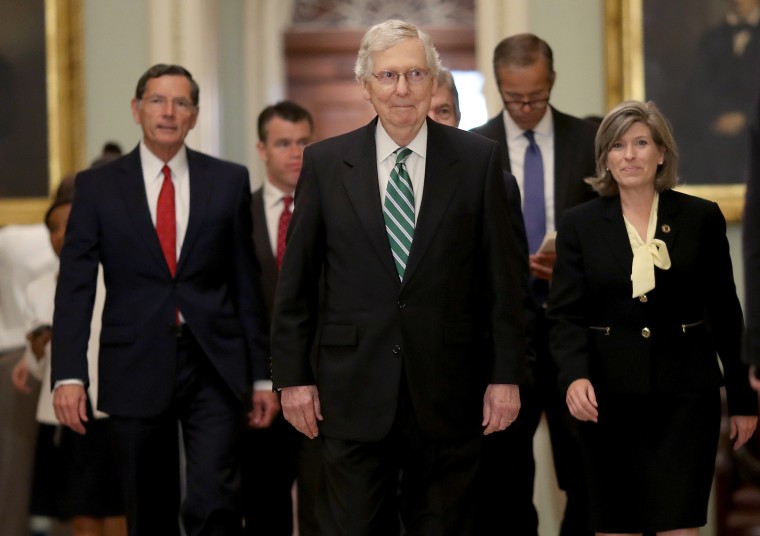WASHINGTON — The Senate on Thursday gave final passage to a budget agreement approved by the House last week that would raise spending limits that would otherwise take effect and suspend the debt ceiling through mid-2021.
President Donald Trump is expected to sign the measure, which passed the Senate 67-28. The House passed the legislation 284-149 last week, with most Republicans voting against it.
Earlier this week, there was a question about whether Senate Majority Leader Mitch McConnell, R-Ky., would have enough Republican votes to pass the plan.
"This is the agreement the administration has negotiated, this is the deal the House has passed, this is the deal President Trump is waiting and eager to sign into law, this is the deal that every member of this body should support," McConnell said Thursday ahead of the vote.
The two-year budget deal was reached last week among Democratic and Republican congressional leaders as well as the president, who urged GOP lawmakers to vote in favor of the bill. "Go for it Republicans, there is always plenty of time to CUT," Trump tweeted.
The two-year agreement would set federal spending limits, increasing military and nonmilitary spending. It adds to the deficit, which has risen since Trump came into office.
Defense spending would increase from $716 billion this year to $738 billion in fiscal 2020, which begins Oct. 1, and to $740.5 billion the following fiscal year.
Nonmilitary programs, such as border patrol, civil rights enforcement, forest management, space exploration and health programs, would rise from $605 billion this year to $632 billion next year and $634.5 billion the following year.
While House Speaker Nancy Pelosi, D-Calif., suggested that the budget deal reduces the likelihood of another shutdown this year, it doesn't eliminate its possibility completely.
Earlier this year, capping off a lengthy showdown between congressional Democrats and Washington that included a 35-day shutdown, Congress passed a spending package that only funded the government through September.
That means Democrats and the White House could face additional hurdles next month to get another funding bill passed to avoid another shutdown.


